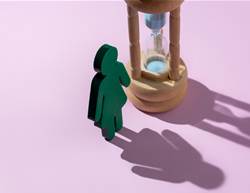Heart disease kills more than two times as many Australian women than breast cancer. And about 40% of heart attacks in women are fatal, and many occur without warning. Sadly, heart disease is less recognised in women, according to Heart Research Australia.
This is because women tend to develop symptoms of heart disease at a much later stage of the illness than men and their symptoms are often more complex or vague, so women are less likely to seek help quickly.
For example, if a woman is experiencing a heart attack, she may not have chest pain. Heart attach symptoms in women include:
- Back, neck or jaw pain
- A burning sensation in the chest, like heartburn
- Dizziness
- Vomiting
- Fatigue
- Feeling lightheaded
- Nausea
- Shortness of breath
- Sweating
If you experience these symptoms, call 000 or go to your nearest hospital.
What are the risk factors?
According to the Centers for Disease Control and Prevention in the US, risk factors for heart disease include:
- high blood pressure
- high cholesterol
- diabetes
- smoking
- obesity
- unhealthy diet
- physical inactivity
Heart disease and menopause
Heart disease can happen at any age in women, but around menopause the risk increases significantly.
Oestrogen helps protect women against heart disease. But your oestrogen levels drop around menopause, says cardiologist Dr Ashleigh Dind.
“The withdrawal of oestrogen in menopause takes you back to the standard risk of cardiovascular disease. Around 10 years after women have undergone menopause they have an accelerated cardiovascular disease profile where they have the same risk as men,” she says.
Your heart disease risk also increases as you get older. Learn more about women and heart disease from Dr Dind below.
How can we prevent heart disease?
Dr Avedis Ekmejian, a senior cardiologist and researcher supported by Heart Research Australia, provides his expert tips on affordable ways to maintain heart health.
1. Eat heart-healthy foods
Want to protect your heart? The Mediterranean Diet is a good place to start. One large study of more than 30,000 women found that adherence to the eating plan over a 10-year period lead to lower risk of heart attacks, strokes, and heart failure.
A heart-healthy diet doesn't have to be costly. Focus on affordable staples such as beans, lentils, whole grains, and vegetables. These foods are not only nutritious but also easy on your wallet.
Avoid excessive processed foods, sugary snacks, and fast food, which can be both unhealthy and costly.
Try to reduce saturated fat and salt in your diet and focus on fresh foods instead. Eating five or more vegetables everyday reduces the risk of heart disease by almost 17%. If you need help with your diet, speak to your GP.
2. Stay active
Four in five Australians don’t do enough exercise, yet physical activity is essential for heart health. You don't need an expensive gym membership to stay fit. Consider free or low-cost options like walking, jogging, or home workouts.
You don't have to focus on classic workouts for your exercise hit, either. Incidental exercise like gardening and household chores can also help you stay active. Try to be physically active for at least 2.5 hours every week, spreading it out over five or more days.
3. Manage stress
Chronic stress can take a toll on your heart. Heart Research Australia recommend relaxation techniques like deep breathing, meditation, or yoga.
Spending time in nature can also reduce your stress levels. One large review of existing research found that "nature prescriptions" were associated with improved blood pressure control, anxiety and depression symptoms and average daily step counts among participants.
Read more about reducing stress.
4. Get regular health check-ups
Preventive care is key to maintaining heart health. Regular heart health check-ups can help detect issues early.
Regular heart health checks (every two years) are recommended if you are aged 45 years and over (or in your 30s if you are of First Nations descent), reports Better Health Victoria. Your doctor will check your blood pressure, cholesterol and blood sugar levels.
5. Quit smoking
Smoking is a significant risk factor for heart disease. Quitting smoking is not only beneficial for your health but also for your wallet. Call Quitline, a free phone counselling line, to help you kick the habit,
Nutritionist Chloe Steele says “Eight out of ten instances of premature heart disease and stroke can be prevented through healthy lifestyle choices. The foundation of this prevention lies in health literacy, as knowledge is the key to a healthier heart.”
February is heart health month. For more information or to donate to research, visit Heart Research Australia.









